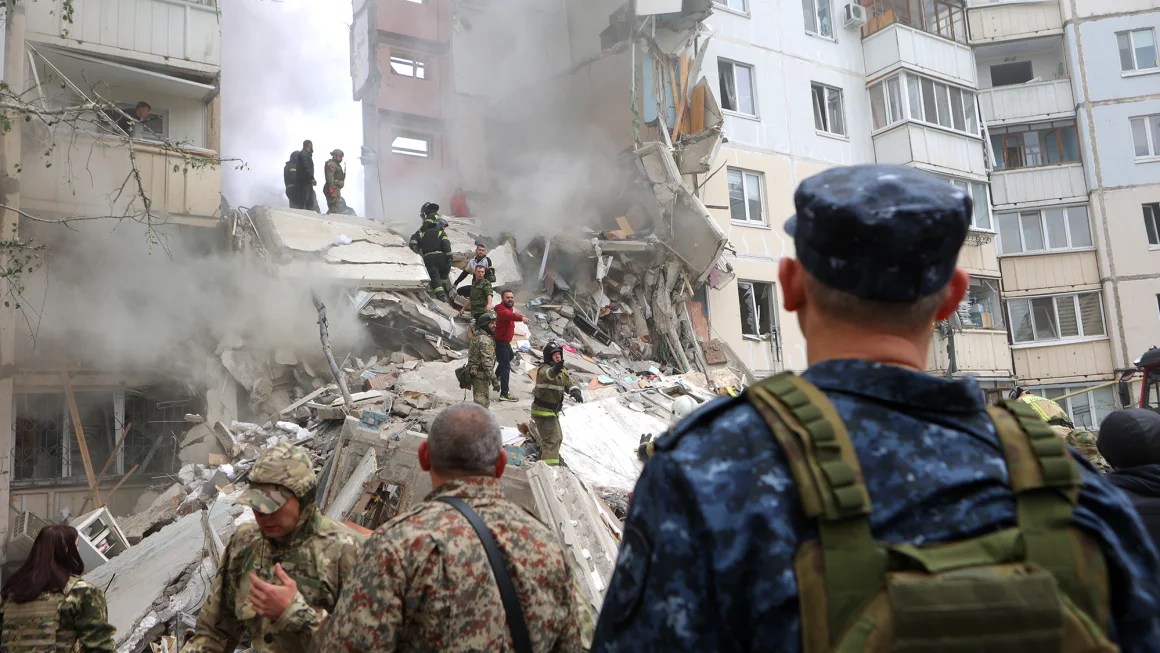Russia Turns to Aggressive Policies Amid Extended Conflict with Ukraine
The relentless conflict between Russia and Ukraine continues to evolve, significantly impacting geopolitical dynamics and national strategies. As Russia's brutal invasion of Ukraine rages on, it has presented the United States with a rare opportunity to recruit Kremlin insiders disgruntled by the war's conduct. U.S. spying agencies, including the CIA, have capitalized on this discord, using social media and other technological tools to attract potential informants. This modern-day espionage is a reminder of Cold War tactics, where acquiring intelligence was fundamental for both sides.
Additionally, the relentless war effort is reshaping the Russian economy. Under the weight of immense military spending and Western sanctions, Russia has witnessed a significant redirection of its economic capabilities towards sustaining a war economy. The Kremlin has dramatically increased its military manufacturing output, now producing some weaponry at rates surpassing those of Western nations combined. This economic shift raises concerns about long-term sustainability and the potential socioeconomic repercussions within Russia.
On the ground, Russia continues to target Ukraine's critical energy infrastructure, deploying over a hundred missiles and drones in recent coordinated attacks. These strikes have led to substantial damage, causing widespread power outages and restrictions across Ukraine. Ukrainian President Volodymyr Zelensky has called for more air defense systems from Western allies, accusing Russia of trying to exploit any lack of determination from their partners.
Meanwhile, Sri Lanka finds itself embroiled in the conflict as it seeks the return of hundreds of its nationals who were recruited to fight alongside Russian forces. Many Sri Lankans, lured by promises of high salaries and other benefits, now face the harsh realities of war, prompting their government's efforts to secure their repatriation.
Germany and other Western nations have begun to adapt their policies, allowing Ukraine to use supplied weapons against military targets on Russian territory. This marks a significant shift in the strategic support provided by Ukraine's allies and underscores the escalating intensity and complexity of the conflict. NATO Secretary General Jens Stoltenberg has affirmed Ukraine's right to defend itself, including attacking legitimate military targets within Russia, as long as it conforms to international law.
- In the documentary *Secrets and Spies* premiering on CNN and BBC, the intricate dance of espionage during the Cold War is explored, offering insights into how historical lessons might shape current and future global stability. With unprecedented interviews and detailed recounts, the film sheds light on how espionage has both fueled and prevented escalations during times of intense geopolitical tension.
- Economically, President Putin's strategy has centralized around sustaining an ever-growing military presence. The replacement of Defense Minister Sergei Shoigu with Andrei Belousov, an economist, illustrates a move towards integrating economic incentives to bolster the war effort even further.
- Sri Lanka's concern for its nationals highlights the global ramifications of the Russia-Ukraine conflict. Other nations like India and Nepal have also reported citizens being drawn into the conflict, often under misleading promises.
- The strategic adaptation by Germany and other NATO members represents a cautious but firm response to Russia's aggression. This new policy might pave the way for a more unified and robust backing for Ukraine while keeping potential escalation and broader implications in check.






